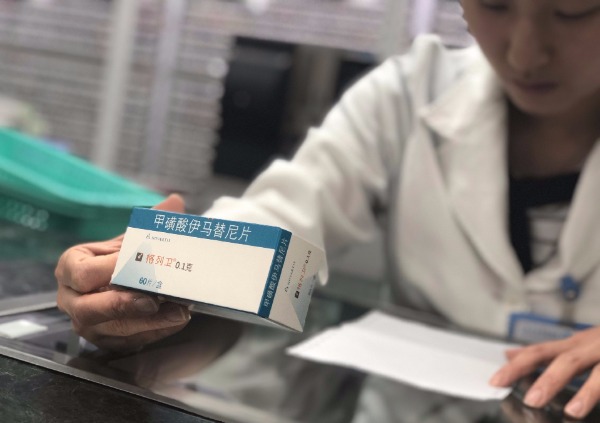China strives for affordable cancer drugs


A breast cancer patient surnamed Zhou in a hospital in Chengdu, Sichuan province, said she is grateful for the reduced costs of cancer drugs.
Zhou said she used to pay over 30,000 yuan ($4,500) each month for the drug Herceptin. "Since the price dropped and my insurance now reimburses the cost, I feel like a weight has been lifted off my shoulders."
The cost and short supply of cancer drugs have been a longstanding public concern in China.
To alleviate these concerns, the government has introduced policies to address the issue while experts have called on domestic pharmaceutical enterprises to invest more in research and innovation and make more cancer drugs available for the patients.
Price reduced
From May 1, import tariffs have been lifted on all common drugs including cancer drugs and cancer alkaloid-based drugs.
This is one of the government's latest efforts to make medical care more affordable and accessible to citizens.
In July 2017, the country included 15 tumor-targeting medicines into its list of medically insured drugs and reduced their prices. The list covers a majority of the most frequently used cancer drugs.
Prices of some medicines have dropped remarkably. In Hunan Province, the price of each vial of Herceptin decreased from 17,600 yuan to 7,600 yuan, and the price of each vial of Fulvestrant, also used to treat breast cancer, dropped from 11,500 yuan to 4,800 yuan.
The newly-formed State Medical Insurance Administration said it would further cut the price of cancer drugs on the list via public bidding and procurement.
And medical insurance institutions and pharmaceutical enterprises should negotiate before more cancer medicines, currently not on the list, are included and covered by the insurance.
Meanwhile, the State Drug Administration (SDA) is expediting the approval of cancer drugs. For example, the approval of the marketing of human papillomavirus (HPV) 9-valent vaccine was shortened to just eight days.
According to Jiao Hong, head of the SDA, the administration will fast-track more imported cancer medicines for approval so these medicines can enter China one to two years earlier.




































